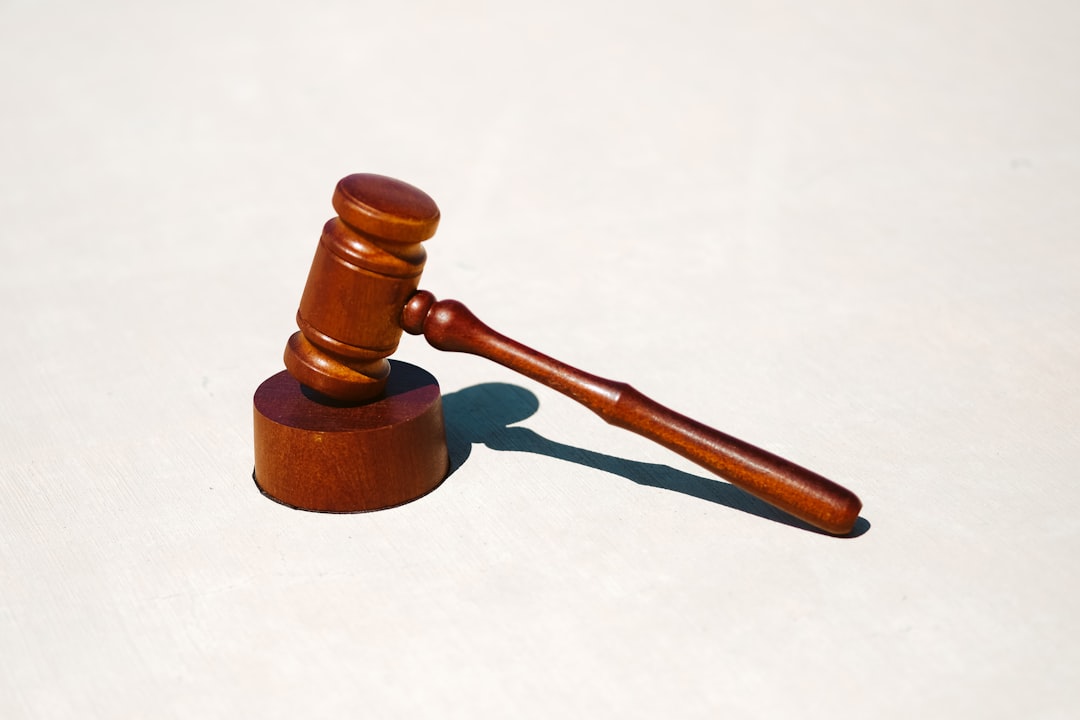Massachusetts businesses using automated calls face strict TCPA regulations, with heavy fines for non-compliance. Data brokers play a crucial role in verifying numbers and managing consent. Residents experiencing robocalls can consult lawyer for TCPA Massachusetts for legal guidance and protection under federal and state laws.
In Massachusetts, the prevalence of robocalls has sparked concern among residents, prompting a closer look at data brokers’ roles in these operations. The Telephone Consumer Protection Act (TCPA) serves as a cornerstone for regulating automated calls, and understanding its implications is crucial. This article explores how data brokers facilitate contact center activities, their legal obligations, and the significant impact they have on compliance and enforcement. Additionally, it offers insights from a lawyer specializing in TCPA Massachusetts, providing guidance on navigating legal recourse for unwanted robocalls.
Understanding Massachusetts Robocall Regulations and the TCPA

Massachusetts, like many states, has strict regulations on robocalls, primarily governed by the Telephone Consumer Protection Act (TCPA). This federal law aims to protect consumers from unsolicited telephone marketing calls and messages. In Massachusetts, the Attorney General’s Office enforces these rules, ensuring compliance with the TCPA.
For businesses engaging in robocall operations within Massachusetts, it is imperative to understand the legal boundaries set by the TCPA. Violations can result in significant financial penalties. If you’re a business or individual concerned about TCPA compliance or seeking guidance from a lawyer for TCPA Massachusetts, consulting with legal experts specialized in these regulations is advisable to navigate this complex landscape effectively.
The Role of Data Brokers in Contact Center Operations

In today’s digital age, data brokers play a pivotal role in contact center operations, especially in Massachusetts, where compliance with the Telephone Consumer Protection Act (TCPA) is stringent. These brokers possess vast databases containing consumer information, including phone numbers, demographics, and preferences. They serve as a vital link between call centers and their target audiences, enabling efficient and personalized communication. By leveraging this data, contact centers can optimize their robocall campaigns, ensuring they reach the right people at the right time.
For Massachusetts residents facing excessive or unauthorized robocalls, knowing the broker’s involvement is crucial when seeking legal recourse. Engaging a lawyer specialized in TCPA Massachusetts can help individuals understand their rights and take appropriate action against brokers and call centers that violate consumer privacy and protection laws. Understanding the data brokerage network is essential to navigating these complex legal issues.
Legal Obligations for Businesses Using Automated Calls

Businesses engaging in automated or robocall operations in Massachusetts must adhere to strict legal guidelines, particularly with respect to the Telephone Consumer Protection Act (TCPA). Failure to comply can result in significant financial penalties and legal repercussions. A lawyer specializing in TCPA Massachusetts is crucial for navigating these obligations, ensuring compliance, and mitigating potential risks.
Companies utilizing automated calls are required to obtain explicit consent from recipients before initiating such communications. This includes obtaining written permission or using reliable verbal methods to verify consumer agreement. Moreover, businesses must honor do-not-call requests promptly and maintain robust records of consumer preferences and opt-out choices. A legal expert can guide organizations through these requirements, helping them establish effective practices while protecting their operations from TCPA violations.
How Data Brokers Facilitate Compliance and Enforcement

Data brokers play a pivotal role in facilitating compliance and enforcement of regulations like the Telephone Consumer Protection Act (TCPA) in Massachusetts. These entities possess vast databases containing consumer information, including phone numbers, preferences, and historical interactions. By leveraging this data, they can help robocall operators target their campaigns more precisely and responsibly. For instance, brokers can confirm that calls are made to active numbers, reducing the risk of contacting invalid or disconnected lines, a common issue with TCPA compliance.
Moreover, data brokers assist in avoiding regulatory fines by providing tools and insights into consumer consent management. They track and verify opt-in statuses, ensuring robocallers only contact individuals who have given explicit permission. This proactive approach not only helps businesses stay within legal boundaries but also boosts the effectiveness of their marketing efforts. For Massachusetts residents facing excessive or unauthorized robocalls, consulting a lawyer specializing in TCPA Massachusetts can be beneficial to understand rights and pursue potential remedies.
Navigating Legal Recourse for Unwanted Robocalls: A Lawyer's Perspective

In Massachusetts, as in many states across the country, unwanted robocalls are a persistent problem for residents. The Telephone Consumer Protection Act (TCPA) offers legal recourse against such calls, but navigating these options can be complex. A lawyer specializing in TCPA cases in Massachusetts is well-versed in the nuances of this federal legislation and state-specific regulations to protect consumers’ rights.
If you’ve received unsolicited robocalls, a lawyer for TCPA Massachusetts can advise on potential legal actions. They can help determine if the calls violated your privacy rights and guide you through the process of filing a complaint with the Federal Communications Commission (FCC) or taking civil action against the offending entities. Understanding your options is crucial to addressing this growing issue and ensuring that your rights as a Massachusetts resident are upheld.






